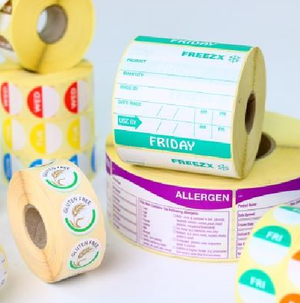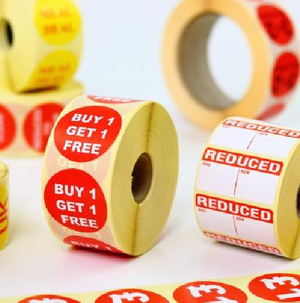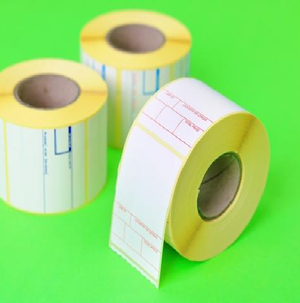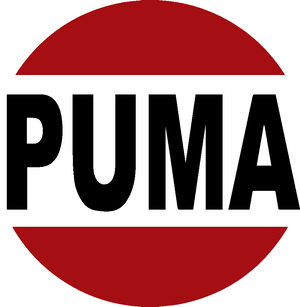
Food and Retail Label Regulations in the UK: What You Need to Know
In the UK, the importance of proper labelling in food and retail cannot be overstated. Whether you're running a local shop, managing a food business, or overseeing a warehouse operation, your labels are more than just a way to display prices—they’re a legal requirement and a key part of consumer safety and trust. Failing to follow UK labelling laws can result in hefty fines, product recalls, or reputational damage.
UK retail and food labelling laws require clear, accurate information on ingredients, allergens, prices, and origin. From Natasha’s Law to barcode compliance, this guide covers everything you need to meet legal standards and avoid penalties.
This comprehensive guide outlines the key labelling regulations for food and retail in the UK, offering best practices and highlighting tools that can help ensure full compliance.
Why Labelling Compliance Matters
Labelling plays a vital role in maintaining transparency between businesses and consumers. For retailers and food producers alike, accurate and legally compliant labelling is essential for:
-
Consumer safety, particularly with allergen declarations and use-by dates
-
Price transparency and customer trust
-
Legal compliance to avoid Trading Standards penalties
-
Operational efficiency, especially in batch tracking and stock control
UK labelling requirements are enforced by local Trading Standards offices, the Food Standards Agency (FSA), and the Department for Environment, Food & Rural Affairs (DEFRA). Non-compliance can have legal and commercial consequences, so it's essential to get it right from the start.
Overview of Key UK Food Labelling Regulations
Food labelling laws in the UK fall primarily under the Food Information Regulations 2014, derived from EU Regulation No 1169/2011. Despite Brexit, most of these rules still apply in Great Britain, with some differences in Northern Ireland under the Northern Ireland Protocol.
Here are the key elements that must appear on food product labels:
1. Name of the food
The label must include the legal name of the food, or a commonly used name that clearly describes the product.
2. Ingredients list
Ingredients must be listed in descending order by weight. Where applicable, compound ingredients should also be broken down.
3. Allergen information
There are 14 mandatory allergens that must be declared and clearly highlighted in the ingredients list (e.g. using bold or underlining).
4. Nutritional information
Most pre-packed food products require a nutrition declaration, including energy (kJ/kcal), fat, saturates, carbohydrates, sugars, protein, and salt.
5. Date marking
-
Use-by date: Required for food safety. Products should not be consumed past this date.
-
Best-before date: Indicates quality and freshness, not safety.
6. Storage and preparation instructions
Essential for safe handling and proper use of the product.
7. Business name and address
This must be the operator responsible for food labelling. It allows for traceability and consumer contact.
8. Country of origin
This is mandatory when the omission could mislead consumers about the product’s provenance. Labelling must be legible, indelible, and in English. It should also be visible and not obscured by other packaging elements.
Retail Product Labelling Rules
Outside the food sector, retailers must comply with the Price Marking Order 2004 and the Weights and Measures Act 1985.
These laws require:
-
Clear display of the selling price and, where appropriate, the unit price (e.g. per litre, per 100g)
-
Labels that are unambiguous, clearly legible, and placed in a way that is visible to the customer
-
Accurate measurements when selling items by weight or volume, using approved equipment
If your shop, market stall, or online store uses price labels, the information must not mislead and should be easy to understand at a glance.
Allergen Labelling and Natasha’s Law
Natasha’s Law, implemented in October 2021, has significantly changed how allergen information is displayed on food labels for certain types of products.
What does Natasha’s Law require?
If your business sells prepacked food for direct sale (PPDS) — for example, sandwiches made and packaged on-site for sale at a café — you must:
-
Provide a full ingredients list
-
Clearly highlight allergens within the ingredients
This applies to small businesses, large chains, and food stalls alike. Using thermal label printers or digital label systems can help automate the process and reduce errors.
Barcode and Batch Labelling: Tracking and Traceability
Labelling is not just about what customers see—it also plays a crucial role in traceability and stock control.
Why barcode and batch labelling matters:
-
Streamlines stock audits and inventory management
-
Enables efficient recall processes in the event of a fault or contamination
-
Helps identify and trace products across the supply chain
-
Reduces reliance on manual systems and human error
In many sectors, particularly in food production and pharmaceuticals, batch numbers and lot codes are a legal requirement. With the right label printer and label supplies, your business can maintain compliance while improving efficiency.
Price Gun Land provides barcode-compatible labels, thermal printers, and customisable label rolls to suit a wide range of business needs.
Labelling Solutions to Stay Compliant
Keeping up with food and retail label regulations might seem daunting, but the right labelling tools can simplify the process. Whether you're printing barcodes, pricing labels, or allergen information, consistent and professional labelling helps ensure compliance and boosts brand credibility.
Recommended tools for compliance:
Price Guns
Ideal for clear and durable pricing labels. Available with different layouts, including multi-line guns for batch or date printing.
Thermal Label Printers
Useful for more complex information such as barcodes, nutrition facts, or allergen listings. Integrates with label software to automate updates.
Pre-Printed Labels
Includes formats for "Use By", "Best Before", allergen warnings, or weight indicators—saving time and ensuring nothing is missed.
Custom Label Rolls
Bespoke labels tailored to your business’s layout, logo, and compliance needs. Available in different adhesives and finishes.
Whether you're a butcher, baker, supermarket, or general retailer, Price Gun Land has solutions to meet your industry standards.
Tips to Avoid Common Labelling Mistakes
Many businesses fall short of compliance due to avoidable errors. Here are some of the most common labelling pitfalls to steer clear of:
-
Illegible text or incorrect font sizes that don’t meet legal minimums
-
Missing or incorrect allergen or nutritional data
-
Out-of-date pricing or expired best-before/use-by dates
-
Labels that peel off, fade, or smudge due to low-quality materials
-
Using a foreign language without providing English translations
To stay ahead, review your labelling processes regularly and ensure all staff understand current UK requirements.
Labelling Compliance Made Simple: Final Thoughts for UK Businesses:
UK food and retail labelling laws are in place to protect consumers and create a level playing field for businesses. Understanding your obligations and investing in the right labelling tools can help you stay compliant, efficient, and trusted by your customers.
Whether you’re labelling food items, retail stock, or batch-coded products, Price Gun Land offers the tools and supplies you need to do it right. With thermal printers, compliant label rolls, price guns, and barcode solutions, we make it easier for UK businesses to label accurately, legally, and confidently.
Explore our full range of labelling products today and take the hassle out of compliance with Price Gun Land – your trusted supplier for UK retail and food labelling solutions.











